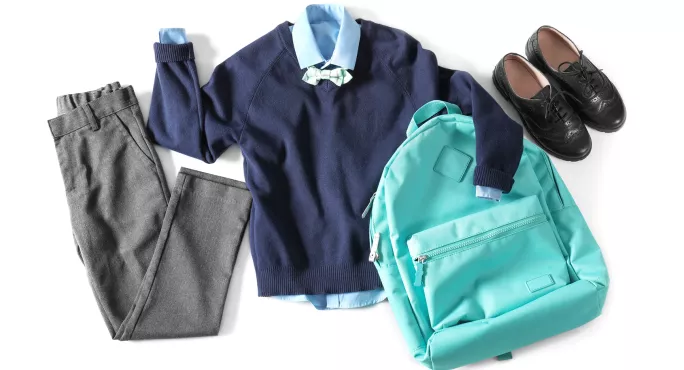Most schools giving uniforms and clothing to pupils in need

Nearly nine in 10 schools in England are providing uniforms and clothing to some pupils as the cost-of-living crisis continues to bite, a report suggests.
The survey findings also show that more than two in three (70 per cent) of senior leaders in schools have offered food to some pupils - through food parcels, food banks, food vouchers and subsidised breakfasts.
And the majority of senior leaders are providing subsidies for extracurricular activities for some pupils (more than 90 per cent) and additional support for some children for uniforms and clothing (more than 87 per cent), the survey finds.
- Related: 1 in 4 teachers bring food for hungry pupils
- Child poverty: More than half of teachers “have given clothes or food to pupils”
- Hungry pupils: Cuts have left schools to feed hungry children, says CofE
The findings are from a National Foundation for Educational Research (NFER) report published today. It says that although most of the additional support schools are offering is not new, they have expanded the scale and range available to pupils over the past year “in response to cost-of-living pressures”.
More than four in five (84 per cent) of senior leaders reported that cost-of-living pressures have increased both the numbers of pupils requiring additional support and the level of need.
Schools helping pupils in cost-of-living crisis
Warm spaces or “warm banks” and facilities for washing clothes are the support services most commonly reported as being newly introduced this academic year.
School leaders also reported that increases in the cost of living have led to a rise in safeguarding concerns, behaviour incidents and absenteeism.
The majority of senior leaders (more than 80 per cent) report that increases in the cost of living have increased safeguarding concerns and/or incidents in their school.
The findings are based on responses to a survey of 1,354 senior leaders and 1,317 teachers in state mainstream primary and secondary schools in England, carried out in April and May.
The report - conducted in collaboration with ASK Research and funded by the Nuffield Foundation - also included responses from 87 senior leaders and 41 teachers in special schools in England.
Report co-author Jenna Julius, NFER’s research director, said: “The cost-of-living crisis is having a profound impact on pupils and families. Schools are providing unprecedented levels of urgent support.
“Pupils whose most basic needs are not being met - whether it is going to school hungry, or being unable to afford uniform or transport costs - are less likely to attend school and successfully engage with learning.
“Without urgent action now there is a risk that the crisis will have far-reaching and long-lasting impacts on pupils.”
The NFER report is calling on the government to extend the current eligibility for free school meals in mainstream schools. It adds that the government should provide greater financial support to address pupils’ wellbeing and welfare needs.
Patrick Roach, general secretary of teaching union the NASUWT, said the findings were a “grave cause of concern” and that teachers “should not be expected to pick up the pieces of government failure”.
He said: “The cost-of-living crisis is creating widespread suffering, hardship and destitution among children and young people. No child should go to school hungry or wear dirty, ill-fitting clothes.”
Daniel Kebede, general secretary of the teaching union NEU, said: “The prevalence of poverty and the impact of the cost-of-living crisis have pushed many families into hardship. Schools and their staff are working harder than ever to provide the support they need.
“No family should have to worry about the financial consequences of sending their child to school.”
He added: “The government needs to urgently act to support those on the lowest incomes to have an equal experience of education and reduce the burden on schools. Rolling out free school meals to all children, starting with those in primary, would be a great first step.”
Department for Education Spokesperson said: “Our new guidance already makes clear that costs for parents must be kept down by removing unnecessary branded items and allowing more high-street options, such as supermarket own-label uniforms. Schools should have already reviewed their uniform policies to ensure they are in line with our statutory guidance.”
“We know people are struggling which is why we’re bearing down on inflation and providing record financial support worth an average £3,300 per household. On top of this we have raised benefits - including Universal Credit - by 10.1 per cent, increased the National Living Wage and are supporting families with food, clothing and other essential costs.”
Register with Tes and you can read two free articles every month plus you'll have access to our range of award-winning newsletters.
Keep reading with our special offer!
You’ve reached your limit of free articles this month.
- Unlimited access to all Tes magazine content
- Save your favourite articles and gift them to your colleagues
- Exclusive subscriber-only stories
- Over 200,000 archived articles
- Unlimited access to all Tes magazine content
- Save your favourite articles and gift them to your colleagues
- Exclusive subscriber-only stories
- Over 200,000 archived articles



